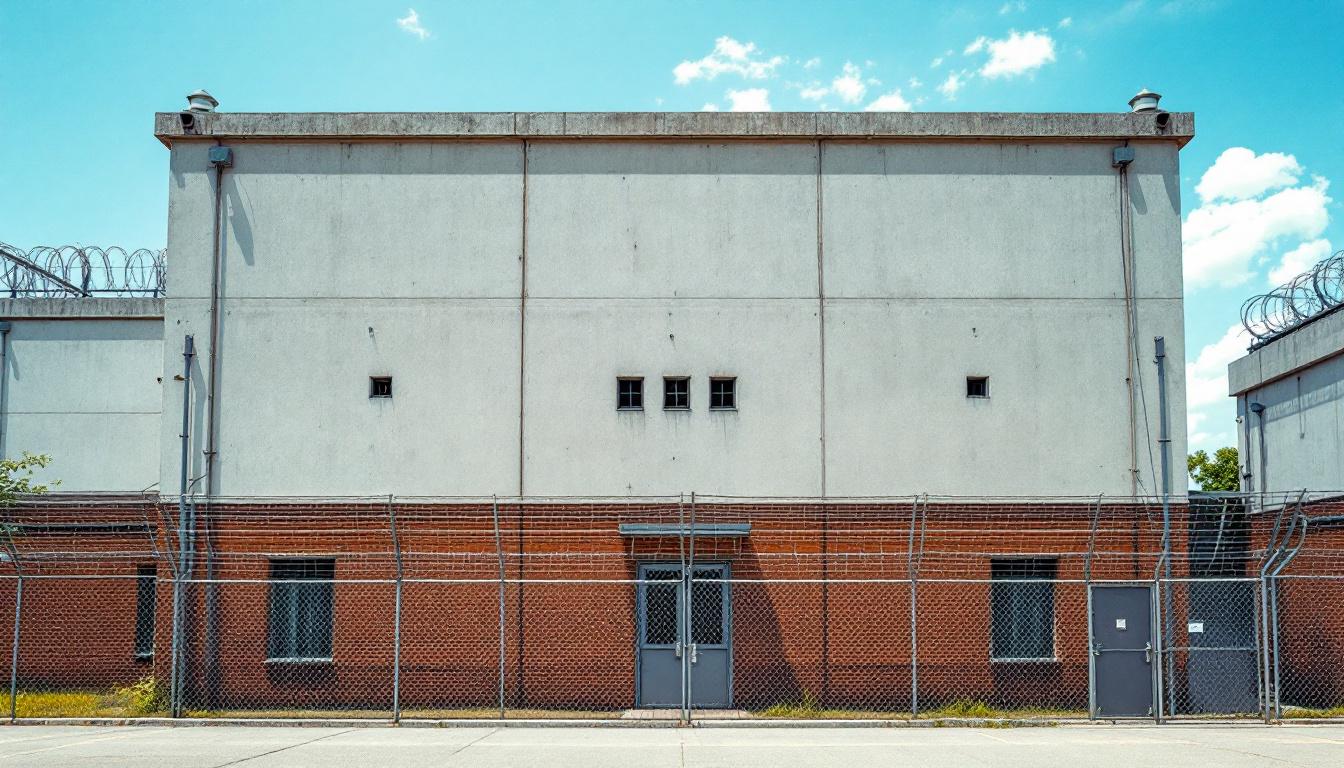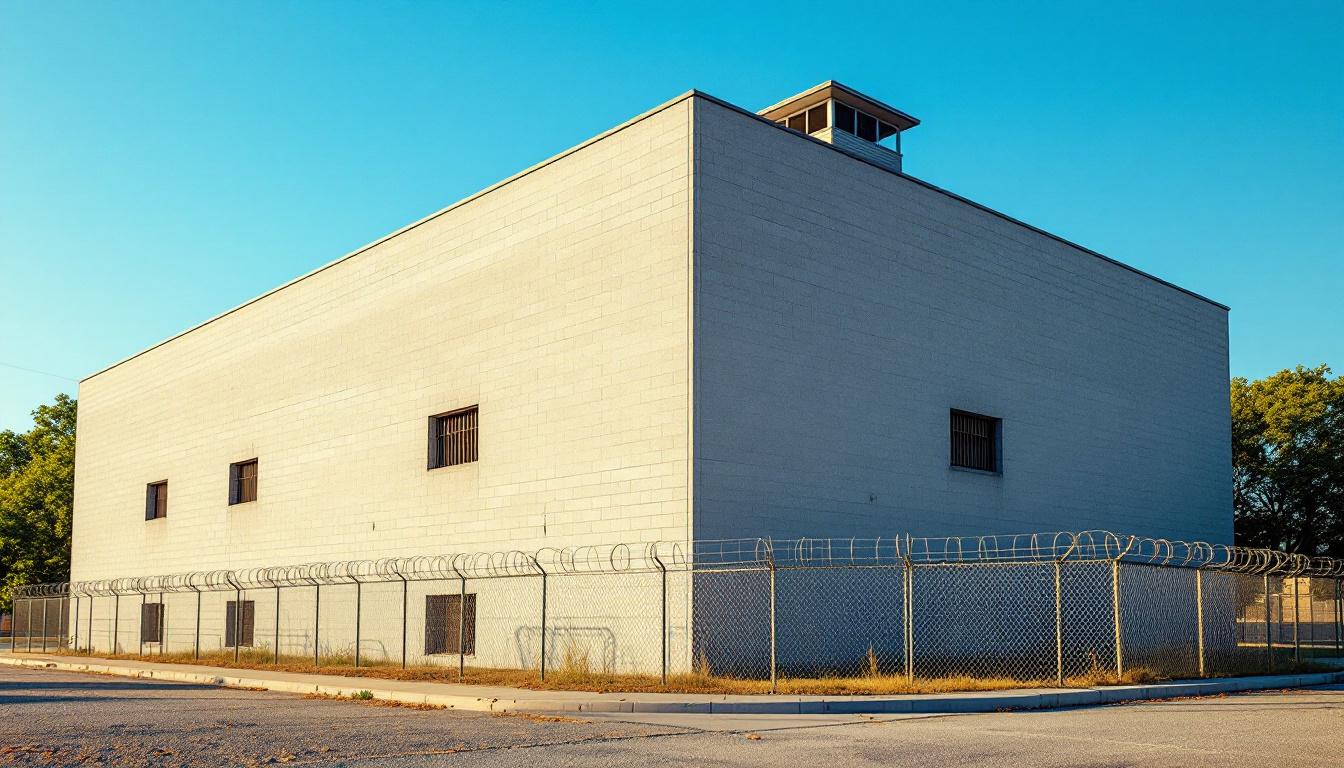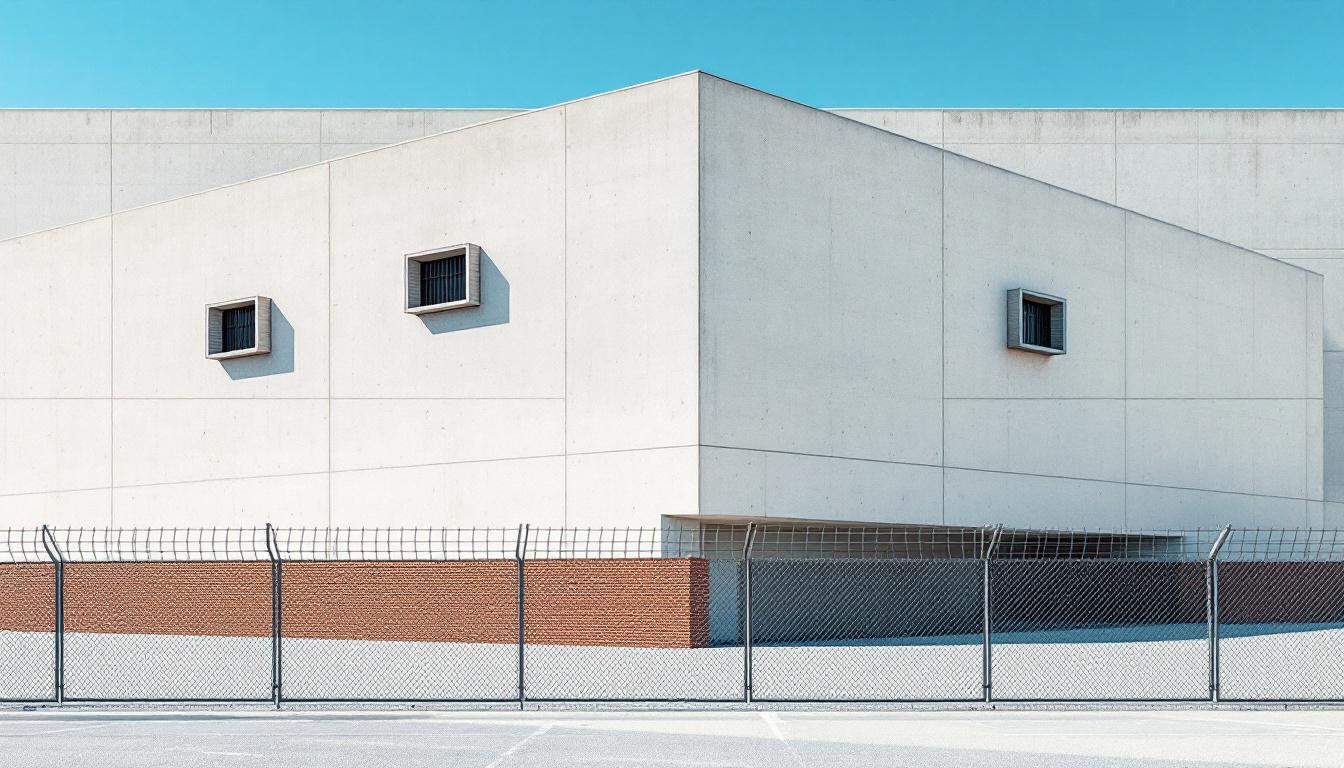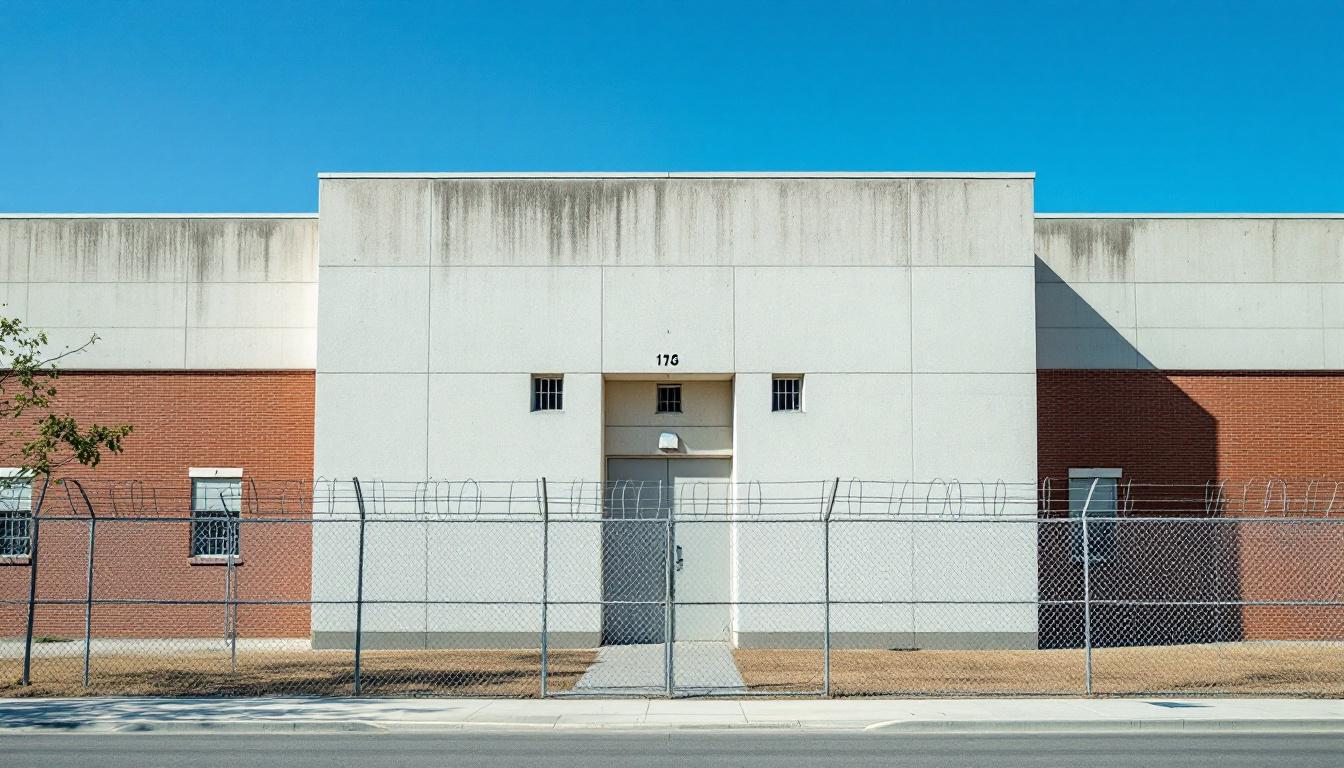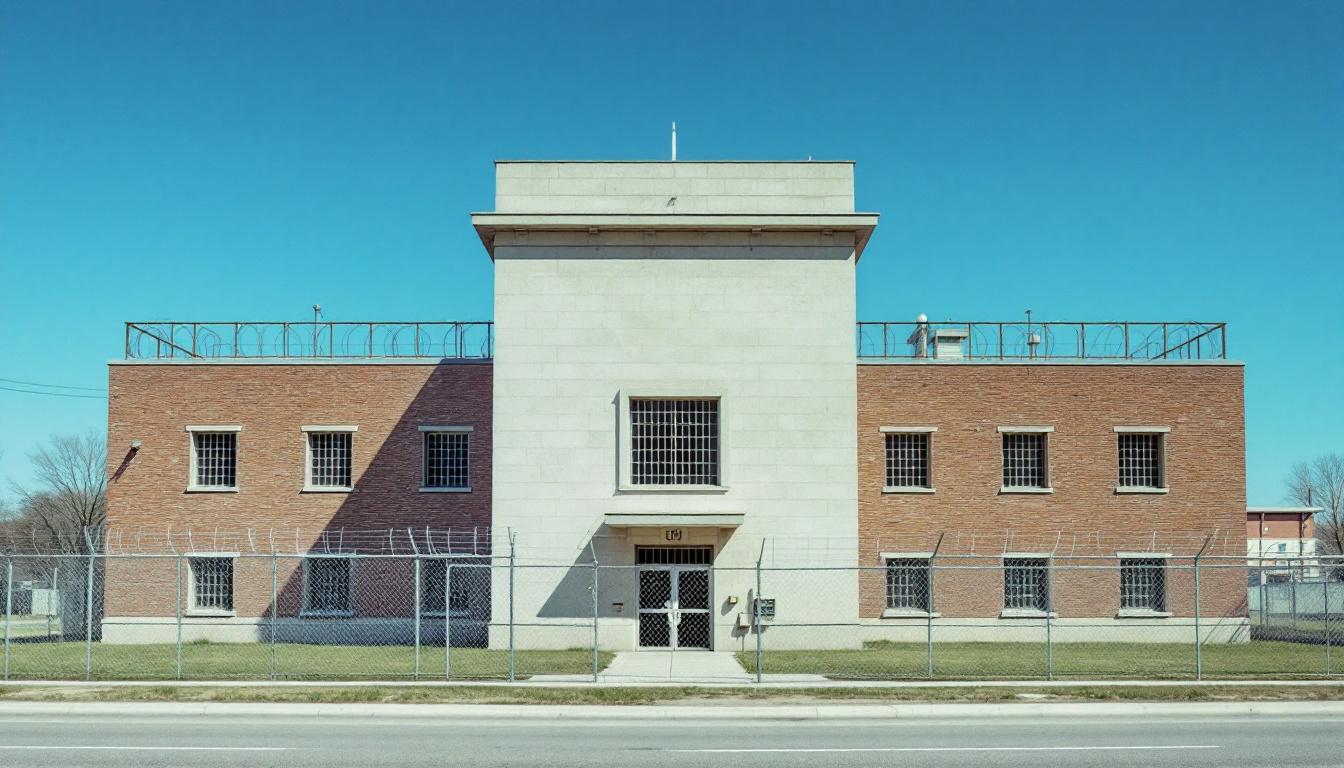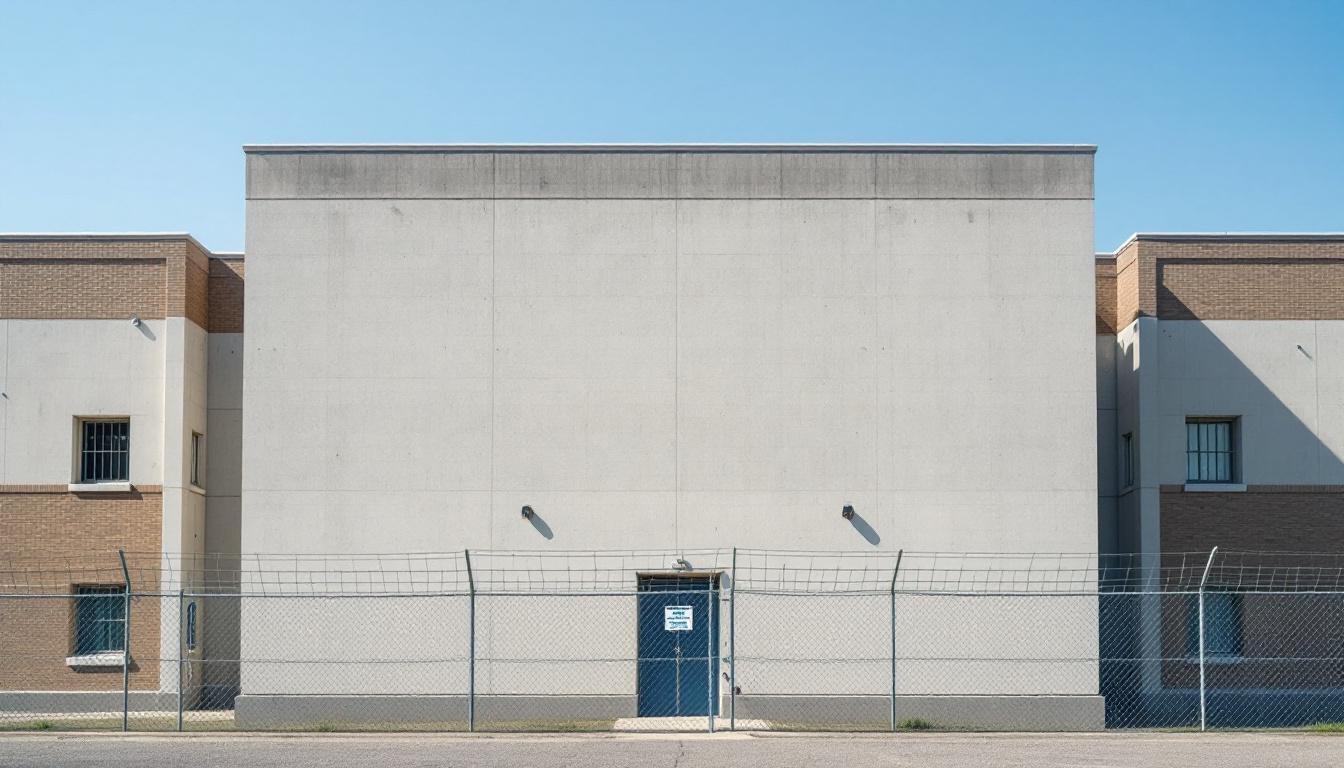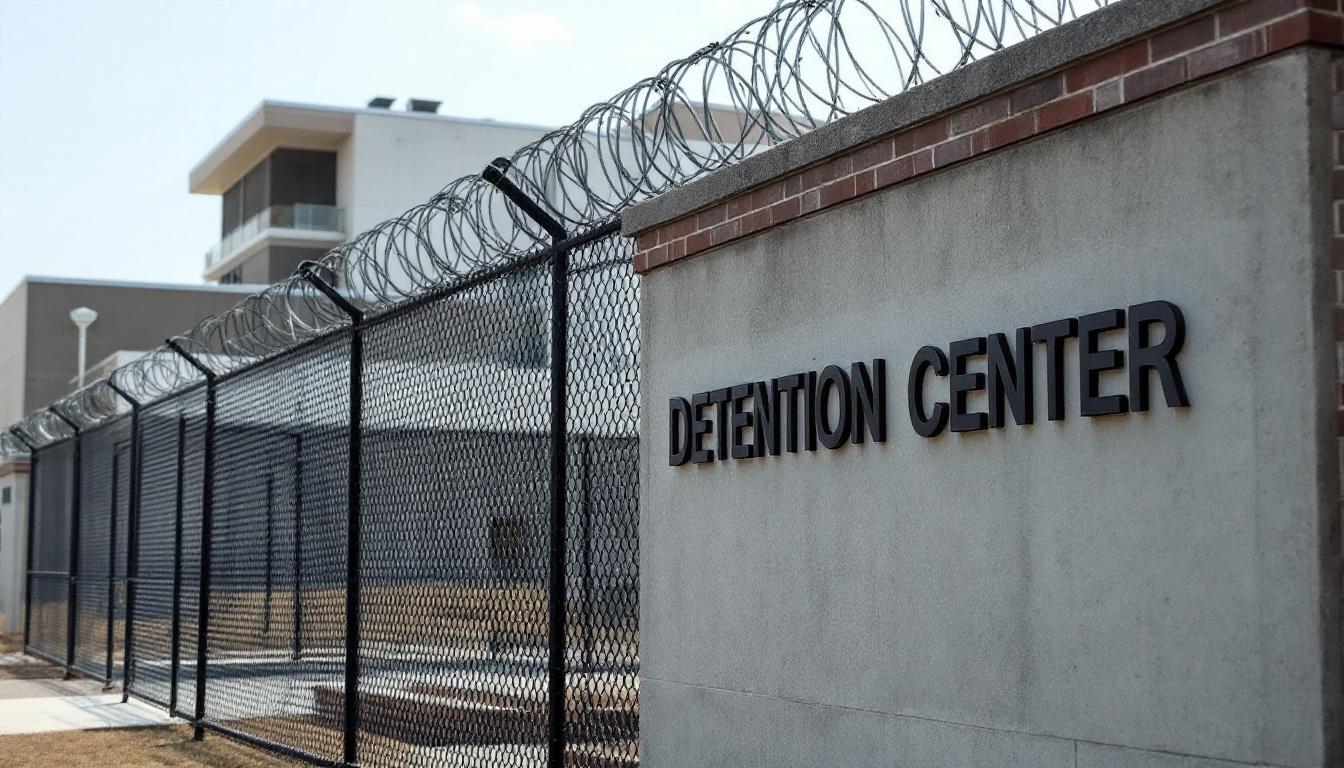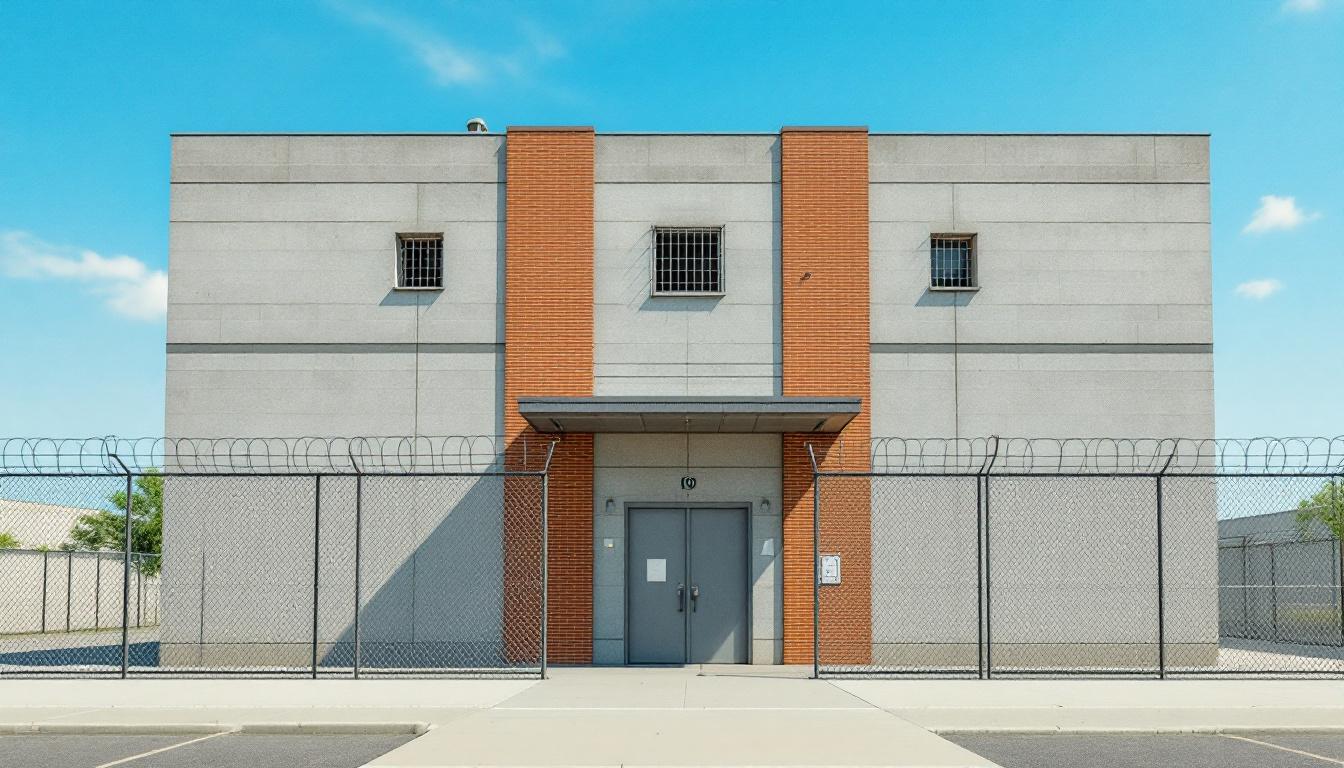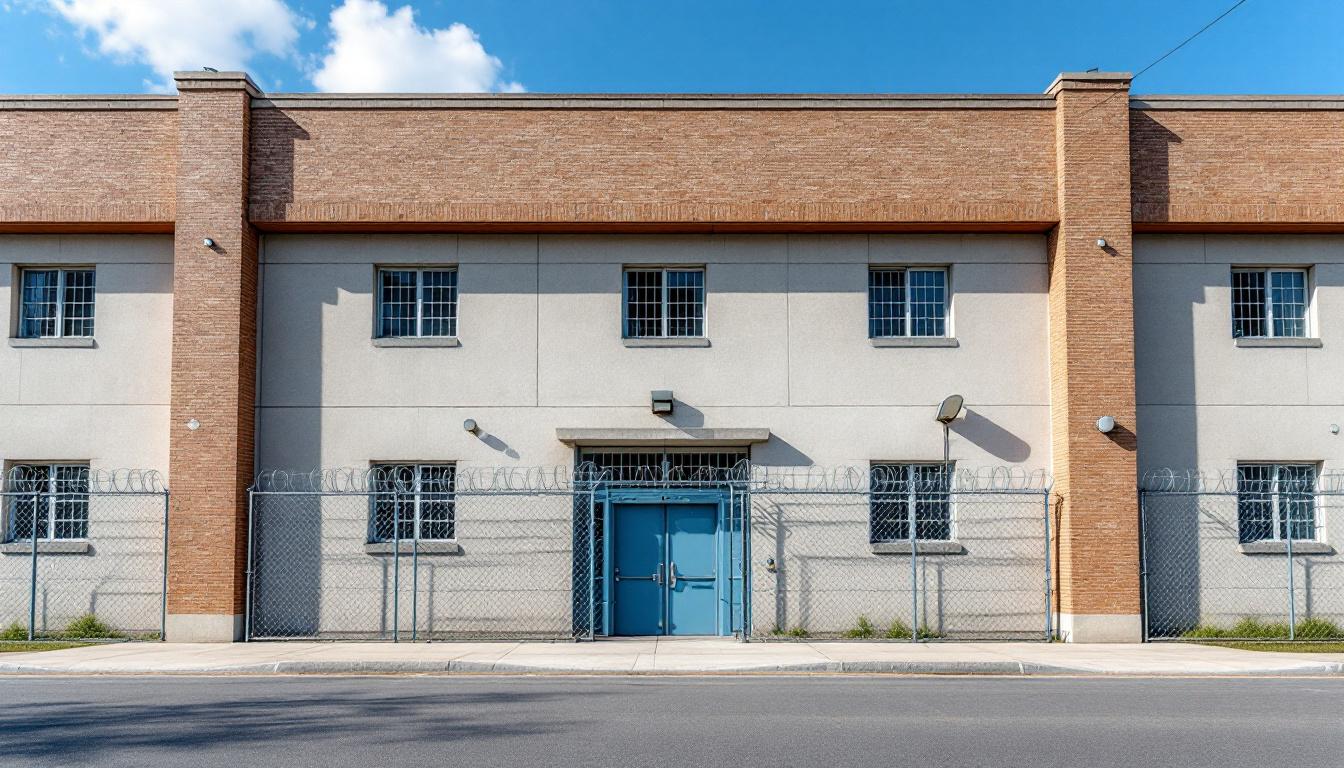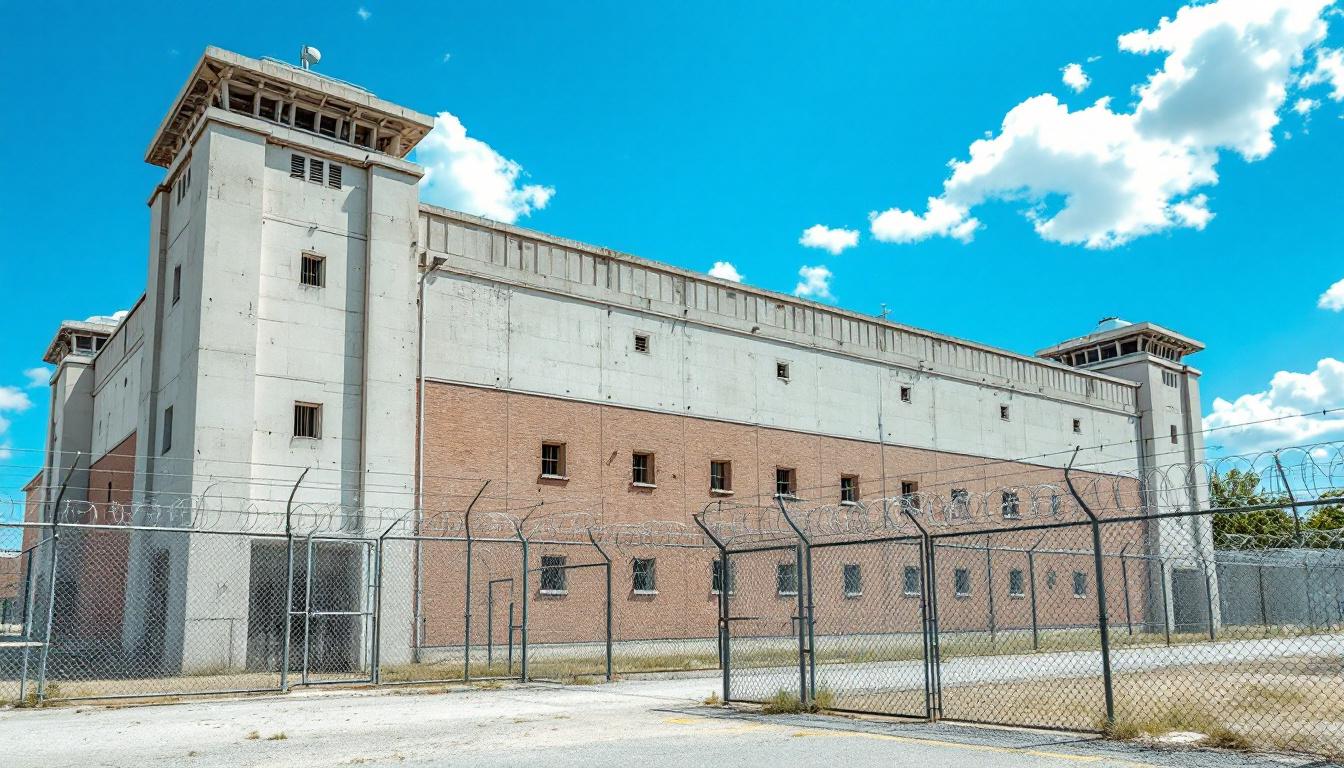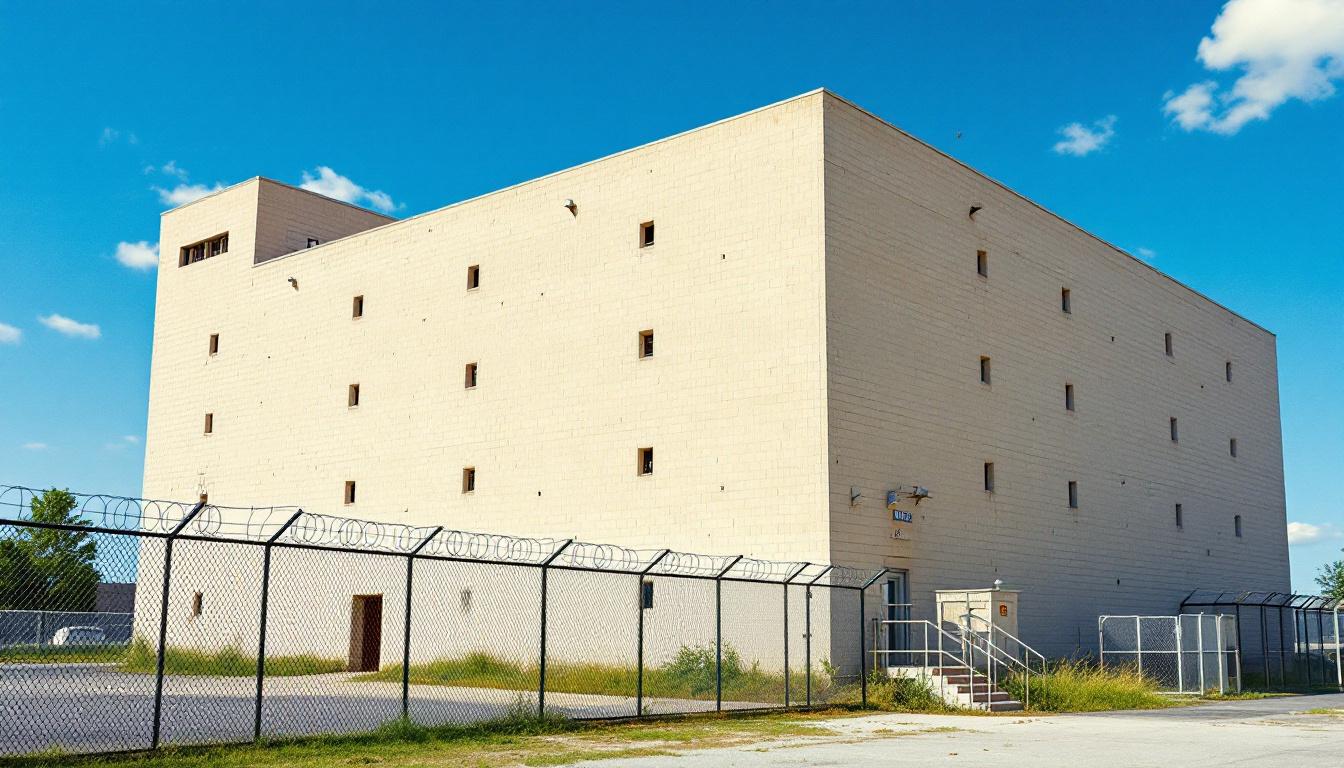
Quick Navigation
How to contact an inmate at Burke County Jail
This comprehensive guide will walk you through how to connect with an inmate at Burke County Jail. Follow the steps below to find an inmate and send letters and photos:
- Search for the inmate using our search tool below
- Create your account or log in to Penmate
- Write your message (up to 6,000 characters)
- Send instantly - inmates receive printed copies daily
Find an Inmate
Search for an inmate to start communicating today
Tip: You can search by first name, last name, or inmate ID number
To contact a person at Burke County Jail start by searching for the person on the official facility website. Perform a search by following these steps:
- Step 1: Enter their first name and last name into the search form and click "Search"
- Step 2: Locate their inmate record
- Step 3: Write down their Inmate ID and any housing information provided
Important! Be sure to enter the person's full name. Nicknames should not be used.
How to Send Messages to Inmates

You can use your phone or computer to send emails, letters, and photos to an inmate. Messages are sent electronically to inmate tablets or kiosks at the facility. If you would like to send a message, start by searching for an inmate at Burke County Jail.
Sending Photos and Postcards

A great way to send love and support to a loved one at Burke County Jail is to send photos and postcards. It only takes a few minutes to send photos from your phone and it makes a huge difference. You can also mail postcards with words of support and inspiration, or design your own postcard for special moments like birthdays and holidays.
Important! Be sure not to send any explicit photos or they may not be approved by the facility. You can also use a photo printing app like Penmate to make sure your photos are printed at the correct size (4x6 or 3x5) and are mailed according to the rules and regulations of Burke County Jail.
Frequently asked questions about Burke County Jail
-
How long does it take to deliver a message?
If you're sending an email message your letter is usually delivered within 24-48 hours. For messages sent via mail you should expect delivery within 3-7 days. All messages will need be approved by Burke County Jail.
-
How much does it cost to send a message to Burke County Jail?
You can send a message free using your phone or mail a message via USPS for the price of a $0.60 stamp and envelope. You can also purchase credits or e-stamps from services starting at $1.99.
-
What services can I use to contact an inmate at Burke County Jail?
Penmate
You can use Penmate to send letters and photos to an inmate from your phone. It's an easy way to stay in touch during your loved one's incarceration. Use the inmate locator to find an inmate's location and contact information, then you can send messages within a few minutes.
Securus messaging
Securus may be another option for communicating with an inmate at Burke County Jail. You can create a friends and family account and purchase credits to send messages. All messages will be reviewed and must be approved by the facility.
JPay
Some county jails and state prisons may support sending messages with JPay. You must register an account with the system, find your loved one, and purchase stamps to send messages. For some locations you can also attach photos.
Smart Jail Mail
You may also check if Smart Jail Mail is available at Burke County Jail. Smart Jail Mail is operated by Smart Communications and has contracted with some state and county jails. After purchasing credits, your messages and photos are sent to the facility, printed out, and then handed out to your loved one.
-
What is the mailing address of Burke County Jail?
Mailing address:
Burke County Jail
130 Government Dr
Morganton, NC 28655
Phone: (828) 764-9590 -
What are the visiting hours at Burke County Jail?
Visiting hours at Burke County Jail vary by housing unit and security level. Generally, visits are scheduled on weekends and holidays, with some facilities offering weekday visits. Contact the facility directly at (828) 764-9590 or check their website for the current visiting schedule. Visits typically last 30-60 minutes and must be scheduled in advance.
-
What items are prohibited when sending mail to Burke County Jail?
Prohibited items typically include: cash, personal checks, stamps, stickers, glitter, glue, tape, staples, paperclips, polaroid photos, musical or blank greeting cards, hardcover books, magazines with staples, and any items containing metal or electronics. Only send letters on plain white paper with blue or black ink. Photos must be printed on regular photo paper (no Polaroids). Always check with Burke County Jail for their specific mail policies.
-
How do I send money to an inmate at Burke County Jail?
You can send money to an inmate at Burke County Jail through several methods: 1) Online using JPay, Access Corrections, or the facility's approved vendor, 2) Money orders mailed directly to the facility with the inmate's name and ID number, 3) Kiosks located in the facility lobby, or 4) Over the phone using a credit or debit card. Fees vary by method, typically ranging from $2.95 to $11.95 per transaction.
-
Can I schedule a video visit with an inmate at Burke County Jail?
Many facilities now offer video visitation as an alternative to in-person visits. At Burke County Jail, video visits may be available through services like Penmate, Securus Video Connect, GTL, or ICSolutions. Video visits typically cost $10-20 for 20-30 minutes and must be scheduled in advance. You'll need a computer or smartphone with a camera and reliable internet connection. Contact the facility for their specific video visitation policies and approved vendors.
-
What identification do I need to visit an inmate at Burke County Jail?
All visitors must present valid government-issued photo identification such as a driver's license, state ID, passport, or military ID. Minors must be accompanied by a parent or legal guardian who can provide the minor's birth certificate. Some facilities require visitors to be on the inmate's approved visitation list, which may require a background check. Contact Burke County Jail for specific ID requirements and visitor approval procedures.
-
How can I find out an inmate's release date?
To find an inmate's release date at Burke County Jail, you can: 1) Use the online inmate search tool if available, 2) Call the facility's records department, 3) Contact the inmate's case manager or counselor, or 4) Have the inmate provide this information during a call or visit. For privacy reasons, some facilities only release this information to immediate family members.
Facility Overview
Official Website
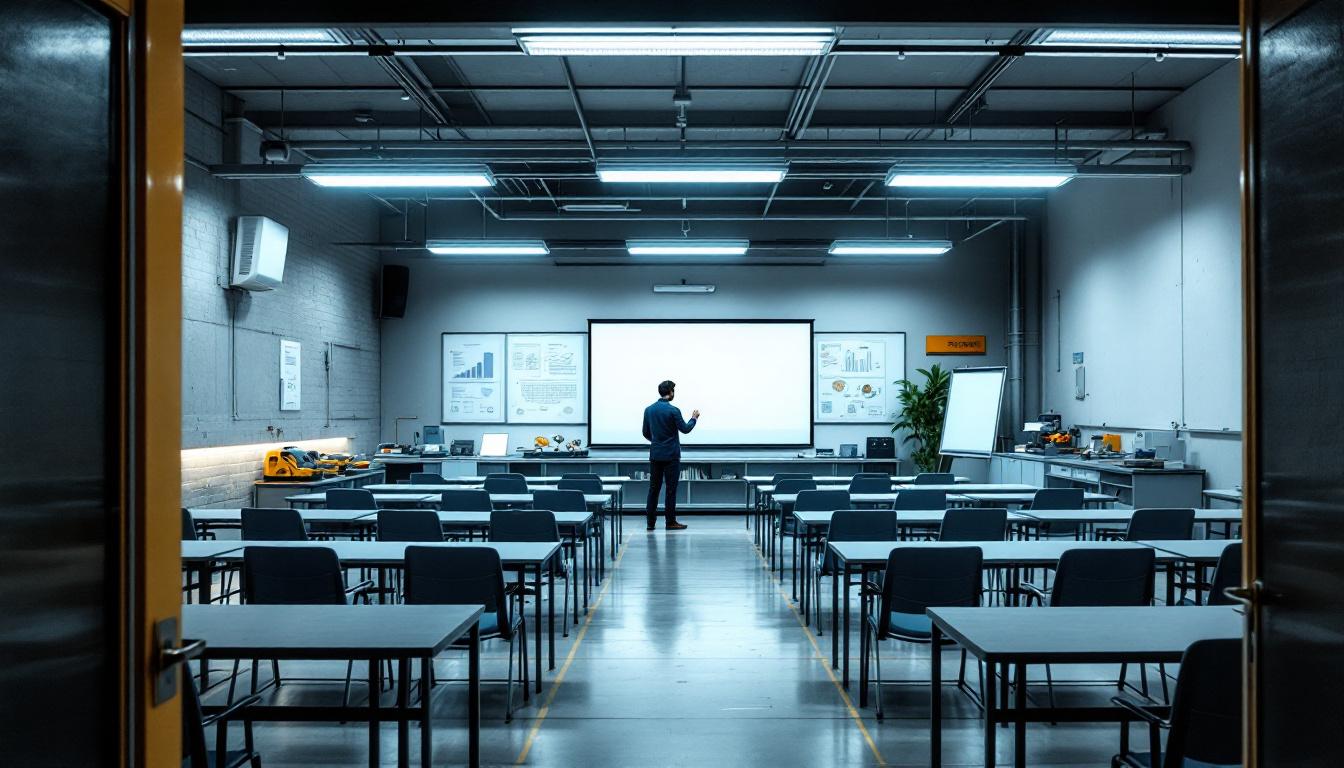
About Burke County Jail
Supporting public safety while maintaining community connections forms the cornerstone of correctional operations in Greensboro, where Burke County Jail, NC serves as a vital component of North Carolina's broader correctional framework. This NC correctional facility operates within the state's commitment to balancing secure detention with meaningful preparation for community reintegration, reflecting the evolving approach to corrections throughout the South region.
Located in Greensboro, the facility typically provides essential services designed to address both immediate custody needs and longer-term rehabilitation goals. Those incarcerated services generally include educational programming, substance abuse counseling, and vocational training opportunities that align with North Carolina's emphasis on reducing recidivism through skill development. The county jail environment often incorporates structured daily routines, mental health support, and family communication programs that help maintain important community ties during incarceration.
Burke County Jail's operations generally integrate with state correctional goals through evidence-based practices that prioritize both security and personal development. The facility may offer religious services, library access, and work programs that provide practical experience while contributing to facility operations. These comprehensive approaches typically support the state's broader mission of preparing individuals for successful community reentry while ensuring public safety remains the primary focus throughout the correctional process.
Programs & Services
Recognizing that periods of incarceration can serve as pivotal moments for personal transformation, the facility cultivates an environment where structured programming becomes the foundation for meaningful change. Those incarcerated encounter a comprehensive framework of opportunities designed to address the multifaceted challenges that often contribute to criminal behavior, while simultaneously building the skills necessary for successful community reintegration. This holistic approach emphasizes that genuine rehabilitation emerges through consistent participation in evidence-based interventions delivered within a secure, structured setting.
Educational advancement forms a cornerstone of the facility's developmental offerings, as those incarcerated may access fundamental literacy instruction alongside more specialized academic support services. The facility typically provides educational services that accommodate diverse learning needs, including specialized programming for individuals requiring additional academic assistance. Moreover, vocational training opportunities often include hands-on instruction in construction trades, allowing participants to develop marketable skills that align with regional employment demands. These practical learning experiences may furnish those incarcerated with industry-relevant competencies while fostering the discipline and work ethic essential for sustained employment upon release.
Therapeutic interventions and personalized support services complement the educational foundation through targeted programming that addresses underlying behavioral patterns and substance-related challenges. Those incarcerated often participate in structured substance abuse programs designed to provide both immediate coping strategies and long-term recovery planning. Additionally, cognitive behavioral therapy sessions may offer participants tools for recognizing and modifying thought patterns that contribute to problematic decision-making. The facility typically integrates life coaching services that help individuals develop practical skills for navigating daily challenges, from financial management to interpersonal communication, creating a comprehensive support network that extends beyond traditional correctional programming.
Daily Life & Visitation
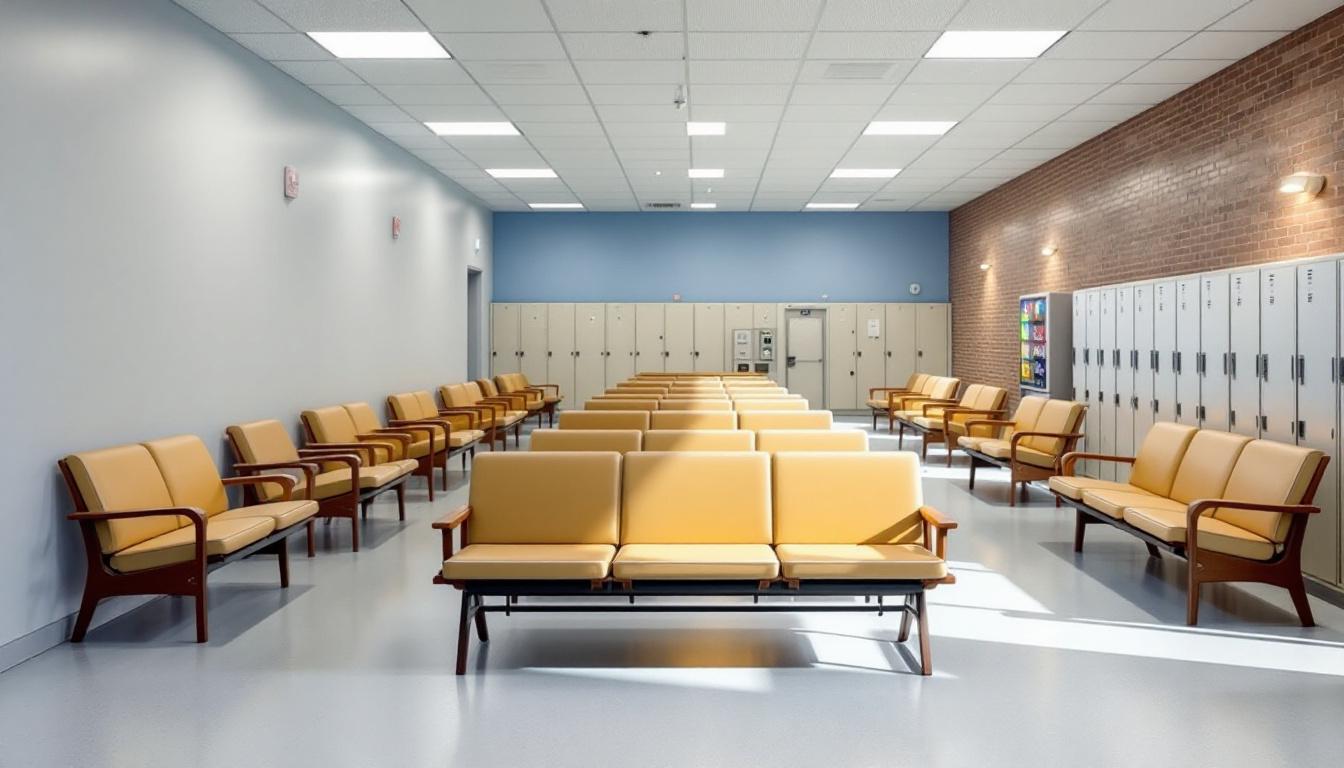
Strong family bonds and social connections remain vital lifelines for those incarcerated at Burke County Jail, as the facility recognizes that maintaining relationships with loved ones often serves as a foundation for successful reentry into the community. Today's structured environment consistently provides opportunities for meaningful interactions, both among residents and with family members through various communication channels and visitation programs.
The housing units typically accommodate residents in dormitory-style settings or smaller cells, where individuals often develop supportive relationships with their peers while navigating the challenges of incarceration together. Meals generally take place in common dining areas, furnishing natural opportunities for conversation and community building among those who share similar experiences and backgrounds. Moreover, these shared spaces become informal gathering points where residents may offer each other emotional support, share advice about legal matters, or simply engage in everyday conversations that help maintain their sense of humanity and connection.
Recreational activities and structured programming schedules typically include group exercise sessions, educational classes, and religious services that further strengthen the social fabric within the facility. Whereas some residents may participate in work assignments such as kitchen duties, laundry services, or facility maintenance, these roles often foster teamwork and provide valuable skills for future employment. The facility generally maintains regular visitation schedules and phone privileges that allow those incarcerated to stay connected with family members, friends, and legal representatives, while commissary services typically enable residents to purchase personal items and sometimes share snacks or other allowable goods with fellow inmates, creating small but meaningful gestures of friendship and community support.
Ready to Connect?
Start communicating with your loved one today
Search for an Inmate
